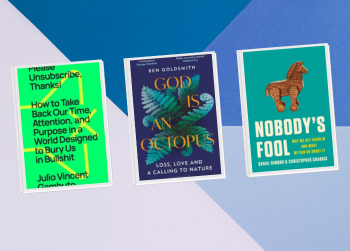Loss, exploitation and marginalisation can rob people of their sense of power and agency. The following new books help us reclaim life through the power of art, nature, and connection as well as the protective power of staying informed on the toxic influences around us.
Believability: Sexual Violence, Media, and the Politics of Doubt / Banet-Weiser, Sarah
“The #MeToo movement has empowered women to speak out against sexual assault. However, in the era of “fake news” and “alternative facts”, the concept of truth is being questioned. This book explores how #MeToo intersects with the post-truth crisis, focusing on experiences of women and people of colour whose claims of sexual violence are often doubted. It analyses how media culture influences the believability of truth about sexual violence today.” (Adapted from publisher and catalogue)
Disentangling from Emotionally Immature People: Avoid Emotional Traps, Stand Up for Your Self, and Transform Your Relationships… / Gibson, Lindsay C
“If you had an emotionally immature, unavailable, or selfish parent, you may remember a childhood full of emotional neglect. But what about other emotionally immature people in your life? Dealing with EIPs can be challenging. They can overly prioritize themselves, causing isolation and pain. This practical handbook provides insights and guidance to set boundaries, improve relationships, and handle these difficult interactions. By understanding their behaviours and transforming your connections, you can live a happier life. Disentangle from EIPs and empower yourself to assert your needs with confidence and self-compassion.” (Adapted from catalogue)
God is an Octopus: Loss, Love and a Calling to Nature / Goldsmith, Ben
“In July 2019, Ben Goldsmith tragically lost his fifteen-year-old daughter, Iris, in a farm accident. This book tells the story of Ben’s journey of soul-searching and healing after this devastating loss which left his whole family reeling. As he immersed himself in the rewilding of his farm, he found solace, hope and healing through the dramatic restoration of nature in the place where it happened. A powerful and inspiring story of finding comfort and strength in nature amidst despair.” (Adapted from catalogue)
Nobody’s Fool: Why We Get Taken in and What We Can Do About It / Simons, Daniel
“”Nobody’s Fool” reveals the psychology of deception, teaching us how to outsmart scammers, as well as the ten factors that make us vulnerable to being tricked (such as our tendency to believe new information and our failure to consider missing information). The book contains entertaining stories, examples and research to show how deception impacts us everywhere, including politics and art. It then offers practical strategies to develop resistance to deception and suggests important questions to ask when something seems suspicious.” (Adapted from catalogue)
Please Unsubscribe, Thanks!: How to Take Back our Time, Attention, and Purpose in a World Designed to Bury Us in Bullshit / Gambuto, Julio Vincent
“Gambuto gives a radical blueprint of the ways we can take a deep breath, renew, and commit to a more intentional life, individually and collectively. From unsubscribing to emails and automated subscriptions to re-evaluating the presence of people and ideas and habits that no longer serve us or make us happy. It helps us focus on where we find joy in our lives and encourages us to toss out what doesn’t bring us joy in this modern world.” (Adapted from catalogue)
Your Brain on Art: How the Arts Transform Us / Magsamen, Susan
“Ever gotten chills listening to music? Or felt a sense of calm while gazing at a serene painting? We rarely stop to consider the causes. Neuroaesthetics, a new science, explains our physiological reactions to art. Gardening, for instance, can help a person heal from trauma, or listening to a major fifth interval can snap the body out of fight-or-flight. Art goes beyond pleasure and abstract concepts. It has daily transformative power and helps us cope with stress, anxiety, and burnout. Neuroaesthetics can also bring about significant societal change, like public art in high-crime areas or music and dance therapy for patients with neurodegenerative disorders.” (Adapted from catalogue)


